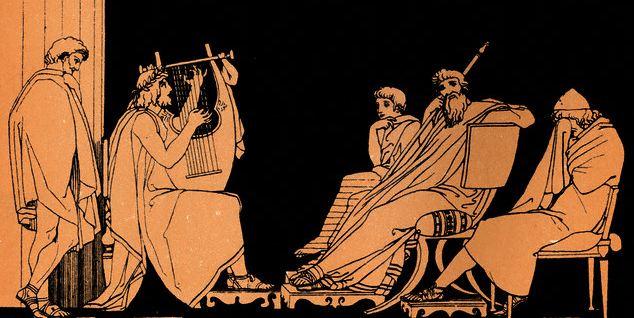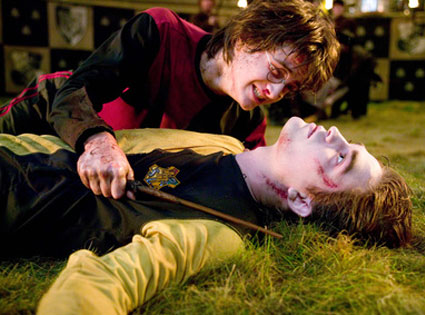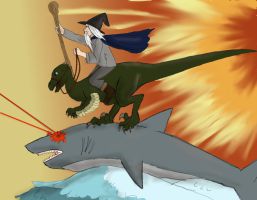Digital Beard Stroking
Media Avatar, Expressor of Efficacy pt 2.
Today, I’ll be building on the concepts established in my last article, so check that out. It’s not like Star Wars, though, it’s much better if you read them in order. Or read the sequel first. What am I, a cop?
So last time, I established some concepts about the limits on our actions and how we can transcend them, as well as our tendency to get involved in characters that aren’t, strictly speaking, real. One of the most interesting aspects of this topic is that our interactions with media have been happening since the origination of media and communication. We’ve been extremely involved with our characters and their actions since day one.
While at it’s finest, it can be an empowering experience and provide psychological release from otherwise powerless situations, which could be considered a cathartic release from what would otherwise be unresolvable stress, it’s also dangerously effective on our minds. “Parasocial Interaction” is a term to describe the way people build relationships with non-responsive characters in media. It’s been a facet of our culture forever and it’s been a force of education (Sesame Street, for example) and a contributing factor in deranged acts. If you’re not familiar with John Hinckley Jr., Google him. I’ll wait.
…
Right? Crazy.
This is demonstrably a facet of human interaction that we will relate to characters in our media. It’s not really good or bad, intrinsically, it is an aspect of our psychology. Most amusingly, it’s present in more places than one might expect. Gamers catch a lot of flak for spending hours raiding in WoW, but psychologically, it’s really not that different than shouting at a sports team, especially when you’re at home. Providing helpful advice to soap opera characters (who never seem to listen, tsk tsk), actually crying over the written death of a fictional character (not that we’ve done THAT, right?), agonizing over your fantasy football team: These are all related in our minds in terms of the Parasocial Interactions. Our minds can certainly distinguish between our own successes and failures and those of our avatars – be they sports teams, written characters or disturbingly beefy gun-totin’ psychopaths – but our ability to relate and empathize is what makes those experiences feel so real. We’re pretty much wired to relate to the experiences of our peers, especially when they’re heroic or powerful.
Within the context of gaming and (you’re free to challenge me on this and I’d be happy to discuss) most of our favorite “passive” media, is that very heroism and power. We WANT the main character to succeed and be powerful. We want to see that character overcome adversity. We WANT to BE the main character (or one of the ensemble). We want to identify with them and be like them, at least in the environment we’re presented with. This gives us a symbolic victory over our own obstacles in life. Catharsis! Consider a video game where you played as one of the vault dwellers who didn’t ever leave. The game consists of performing routine duties, keeping your head down, maybe angling for a promotion here or there and hopefully having a family. Such a game would not have the mainstream appeal of Fallout 4. True, it has a certain charm (I’d probably give it a shot out of sheer curiosity, like “The Stanley Parable”), but the novelty of the concept is precisely because it is juxtaposed against all the rest of our games. In every other game, we’re empowered to make changes and impact the world. In most of our real lives, genuine, palpable victory is a rare thing. In media, “Winning” is more than common, it’s standard. Of COURSE you’re going to win. That’s the point.
I can’t think of anything more empowering than that. Can you?




Pingback: Digital Beard Stroking: Alien Worlds 3 – Re-Epistemology, rewinding our own minds – Aeither.net
Pingback: Fun: noun. Enjoyment? yes. Logical? no – Aeither.net